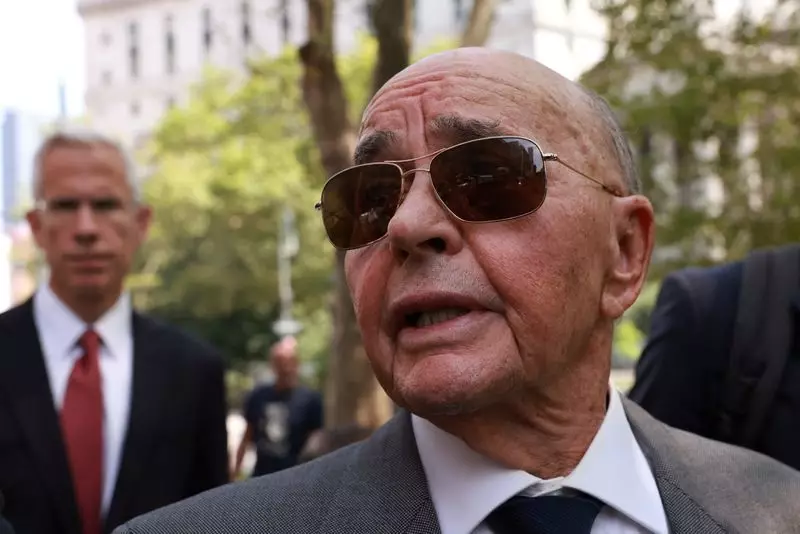Joe Lewis, a British multibillionaire, is facing sentencing in a U.S. court for illegally sharing stock tips obtained through his investments. The case has sparked interest due to Lewis’ wealth, his admitted guilt, and the potential impact of his actions on the financial markets.
Sentencing Guidelines and Plea Deal
Federal sentencing guidelines suggest a prison sentence of up to two years for Lewis’ illegal activities. However, both prosecutors and Lewis’ attorneys have requested leniency for the 87-year-old given his health condition and his admission of guilt. Lewis entered a plea deal with prosecutors in January, agreeing to a hefty fine and relinquishing control of his companies.
The prosecutors allege that Lewis shared inside information about his portfolio companies with his private pilots, friends, personal assistants, and romantic partners. This information allegedly led to millions of dollars in profits for those who received the tips. The case highlights the importance of maintaining confidentiality in the financial industry to preserve market integrity.
In a letter to the court, Lewis apologized for his actions, attributing them to hubris and childish exuberance. He acknowledged the devastating consequences of his behavior and expressed remorse for the harm caused. Despite his apology, Lewis still faces the consequences of his actions and awaits the court’s decision on his sentencing.
Given Lewis’ decision not to fight extradition and his health issues, prosecutors have recommended leniency in his sentencing. They have emphasized the potential risks to Lewis’s health if he were to be imprisoned, taking into account his significant net worth and health concerns. The case raises questions about the intersection of wealth, privilege, and legal accountability in cases of financial misconduct.
The case against Joe Lewis sheds light on the potential risks associated with insider trading and the importance of maintaining the integrity of financial markets. The impact of his actions on the companies involved and the broader financial landscape underscores the need for robust regulatory frameworks and ethical conduct in the investment industry.
The case of Joe Lewis highlights the complexities of financial misconduct and the legal repercussions for individuals who engage in illegal practices. The outcome of his sentencing will have far-reaching implications for the financial markets and serve as a reminder of the consequences of violating securities laws. It underscores the importance of transparency, accountability, and ethical behavior in maintaining trust and integrity in the financial sector.

